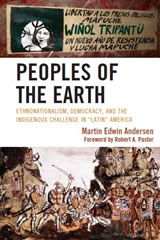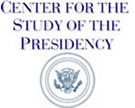Responding to public concerns over growing drug activity and violence in the country, Argentina's leading presidential candidates have offered similar -- and somewhat alarming -- solutions to these issues ahead of Sunday's elections.
On October 25, Argentina will hold its 2015 general election, with voters going to the polls to elect a new president and legislative representatives.
No matter who wins, the elections will usher in a new political era for Argentina; current president Cristina Fernandez de Kirchner is constitutionally barred from running again, as she has already served two consecutive terms. (Between Cristina and her late husband Nestor Kirchner, Cristina's predecessor, the Kirchners have occupied the presidential office since 2003.)
Beyond the significance of electing a non-Kirchner as president for the first time in over a decade, the campaign season hasbeen dominated by a number of key issues. Among these are the country's worsening economic situation; social and agricultural policy; and, of particular concern among Argentinians, security and crime.
Indeed, proposals to combat drug activity and drug-related violence in Argentina have prominently figured in the campaigns of the top three presidential contenders.
The Candidates' Anti-Drug Policies
The top three presidential contenders have all put forward similar solutions for how to confront the growing drug trade in Argentina. Proposals have particularly focused onmilitarizing drug policy by increasing the role of state security forces in the fight against drug trafficking. All three candidates also agree on the need for creating a new federal agency to investigate drug crimes.
Current frontrunner and Kirchner-endorsed Daniel Scioli (Justicialist Party/Front for Victory) has called drug trafficking "public enemy number one."
With this backdrop, Scioli, the governor of Buenos Aires province, has promised to triple the number of officers in the national police and navy within the next four years. He has also publicly discussed the idea of creating a local police force to target micro-trafficking.
Current Argentine law prohibits the armed forces from being used in domestic policing roles, unless "the president deems the interior security system to be insufficient." Last year, however, Scioli suggested the government reassess this prohibition on the army.
Sergio Massa (Renewal Front) has been similarly vocal in his demands for tougher anti-drug policies, calling drug trafficking a "national security risk." His proposals include using the police and army to militarize areas "currently held by drug traffickers." Massa also proposed increasing the use of radars, giving the military permission to shoot down suspected drug planes, and using drones to detect drug shipments crossing the border.
Current Mayor of Buenos Aires Mauricio Macri (Republican Proposal) has also placed illicit drugs at the center of his platform, saying that, if elected, defeating drug trafficking would be one of his three major challenges. Macri's drug policy advisor, Eugenio Burzaco, has called for a "comprehensive re-engineering" of national security. And, like Massa, Macri favors shooting down planes suspected of transporting illegal drugs.
Candidates Reflect Public Anxiety
The three candidates' anti-drug policy proposals reflect widespread alarm among Argentinians over the country's growing role in the regional drug trade.
The Catholic University of Argentina found that between 2010 and 2014, public awareness of neighborhood drug sales increased by 50 percent. Another recent study found that eight out of 10 Argentinians believe drug trafficking and drug abuse are a "serious problem" in the country. Of those surveyed, half recommend "harsher laws" to tackle the problem.
The "Cocaine Rice" and "White Charcoal" scandals -- two recent, high-profile drug trafficking cases -- have likely contributed to heightened perceptions of drug trafficking in the run-up to Sunday's election. During the campaign, a number of scholars and drug experts called on politicians to hold a "serious debate" on drug policy. Argentina's Observatory for the Prevention of Drug Trafficking (OPRENAR) also recently sent a document to the top three candidates, outlining steps the next president should take to confront drug trafficking.
The Argentinian public has reason to be worried. In recent years, organized crime and drug trafficking have become increasingly prevalent. Foreign drug trafficking organizations, especially Colombian groups, have established a growing presence in Argentina, using the country as a hideout and a launching point for international drug shipments destined for Europe. This increase in drug activity has paralled a rise in violence, as competing criminal groups battle for control of Argentina's increasingly lucrative domestic drug market.
Militarization: An Inevitable Outcome?
Although they appear to be largely in line with the public's priorities, the candidates' proposals for militarizing the fight against drugs evokes alarm. Evidence suggests the militarization of domestic security -- a popular choice among governments across Latin America -- is detrimental to human rights and has little overall impact on crime and violence in the long term. The candidates' rhetoric also runs contrary to steps taken under the Kirchner administration to decriminalize drug use and phase out the military's participation in the fight against drug trafficking.
Yet the convenience of using the military to fight crime and the desire for quick, demonstrable results may prove too tempting for Argentina's next president, especially since all the top candidates have pledged to be tough on crime. As such, Sunday's elections may do more than just usher in a post-Kirchner political era in Argentina. It could very well mark the beginning of a new, more militarized security strategy as authorities attempt to tackle the country's burgeoning drug trade.




